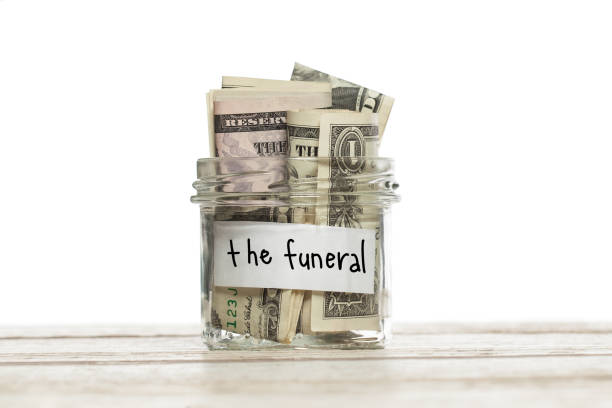How to Beat the High Cost of Funerals
Benjamin Franklin is credited with the famous quote that “nothing is certain in life except death and taxes.” It’s a wise adage that many seniors take only half-way to heart. Most seniors will expend great time and effort working with accountants and financial advisors to protect their assets from the pains of taxes, yet only a small percentage of them will be as proactive about planning for the inevitability of their own mortality.
Benefits of Funeral Pre-Planning
Common sense tells us there are only two choices when it comes to funeral planning: you can do it yourself now or someone else can do it for you later. If you opt for the latter, it can place unnecessary emotional and financial burdens on your loved ones. That’s something grieving family members should not have to deal with under any circumstances.
Funeral preplanning is smart for a lot of reasons. Stating your final arrangement preferences in writing assures that family members won’t have to argue with each other over what you might or might not have wanted. Simple things like choosing the photo you want in your obituary, what you want it to say and what clothes we prefer to be dressed in can prevent a lot of familial strife during such a stressful time.
Financing Your Final Arrangements
Preplanning your funeral is also wise for financial reasons. Most funeral homes offer prepackaged options that allow you to pay for funeral expenses upfront at a fixed price that guards against inflation. The average funeral in 2020 averaged about $7,500, so it’s advised that if you are considering preplanning, you should shop around for the best deal possible. The costs of goods and services at funeral homes can vary so talk to several if possible and get itemized pricing breakdowns for comparison purposes.
Planning for your funeral does not mean you have to prepay. In fact, many financial experts recommend you not prepay. Unexpected things can happen between the time you plan your funeral and when you die, such as the funeral home going out of business or you moving to another state. If you do choose to prepay, make sure the plan you select is transferrable to another location so that your final arrangement investment is protected.
Another smart thing to consider is to open an account at your bank dedicated to funeral expenses. This is called a POD account, or payable upon death account. It’s simple to create and it allows you to set aside a predetermined amount of money to a designated beneficiary that will cover all the goods and services associated with a funeral.
Casket and Urn Considerations
Many people today are opting away from traditional in-ground burials and choosing cremation. Regardless of which option you choose, there are opportunities to cut the costs associated with each. Caskets are required for in-ground burials and in the past, most people purchased them directly from the funeral home. Today, you can comparison shop for caskets online including major outlets such as Walmart and Amazon, the latter offering caskets for $999 with two-day delivery for Prime members. Imagine that. It’s not something everyone wants or cares to do, but if you are frugal with your dollars and have storage space available, it’s something you might want to consider.
Cremation urns can also be purchased at much lower costs online and many companies give you personalization options not available at most funeral homes. There may still be other costs associated with buying your own casket or urn, so it’s smart to inquire with your funeral director about any add on pricing they charge in such instances.
You Can Beat The High Cost Of Dying
The last thing anyone wants to talk about is their final arrangement plans. In fact, most people would rather have a toenail removed at the Podiatrist office than engage in a discussion about how their funeral will happen.
As we grow older, everyone realizes no one is getting out of this life alive and funeral plans becomes a topic that can no longer be tabled for another day. Make no mistake – funerals can be traumatic and expensive, but the impact of each can be minimized with some smart, forward thinking.
The time to start the conversation is now, while you are still alive. With the right information, you can make the best decisions for you and your family.


